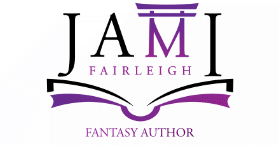
50 Questions to Build Your Fictional World

All writers world build. Although sometimes attributed to science fiction and fantasy writers, anyone who creates a fictional community or describes an imaginary setting is world building.
The goal when world building is to create an authentic setting that can enhance your characters, increase conflict, and drive your plot forward.
This article is not prescriptive, because there is no single right way to build a fictional world. Instead, I’ve pulled together lists of the types of questions you could consider while you think about your setting.
And while I use the term “people” in the lists below, please uses this as a stand-in for beings if you don’t have humans and/or humanoid creatures in your world.
The Details That Make Up Your World
Era
While the “when” of your story is not technically part of your world building, it can have a tremendous impact.
For example, I set my Elemental Artist series on the North American continent, but several hundred years in the future, after technology has failed. While there are remnants of our modern buildings and cities throughout the landscape, the people inhabiting my world have returned to a 1800s manner of living. Most people live in small, rural communities, though they venture into the old cities to salvage for supplies and scavenge metals and other building materials.
The when of your story may impact the clothing, rituals, technology, science, and opinions of the people inhabiting your story world.

Landscape and Geography
- What are the physical attributes of the world?
- Is it all one habitat (e.g. an ice or desert planet), or is the world varied?
- Does your setting support alien life?
- What are the flora and fauna?
- Does your world experience seasons?
- What is the typical weather in your setting?
- What are storms like?
- What do your primary characters look like? Are they humans or humanoid?
- What shelters do your characters inhabit?
- Do they build, find, or commandeer their homes?
- What resources are abundant?
- What resources are scarce?
Food
- What are the staple foods?
- How abundant are food supplies?
- What can cause scarcity?
- Are there special foods for celebrations or rituals?
- How important is food to your characters?
Politics
- What is the leadership structure?
- How do you gain or lose power?
- Have there been wars?
- Who is allied?
- Is there money?
- How does payment work?
- What determines social status?
- Who distributes or controls resources?
Culture
- What genders are recognized?
- Are genders treated equitably?
- How are people rewarded?
- How are people punished?
- Is there a common language?
- What are the holidays or festivals?
- What is the typical family structure?
- Are there varied races and ethnicity?
- If races or ethnicities exist, are there conflicts between them?
- What are the creation myths?
- What is the dominant religion?
- Do secret or informal religions exist?
- How is death viewed?
- What are the death rituals?
- Does everyone agree what happens after they die?
- What is the medical care like?
- How are people educated?
- How prized is education?
- What are the societal taboos?
- How do people travel?
- What do people do to celebrate?
- How does communication work?
- What do people do for fun?
- What entertainment to the people enjoy?
- Does technology or magic exist? If so, can everyone use or access it?

No Info Dumps Allowed
While you may have a ball crafting a complex, fictional world, remember, readers need only the details that move your story forward. Beware the desire to explain to your readers your world’s history or how things work… unless they pertain directly to your scene.
Anything goes when world building, but remember, the details need to support each other.
If you envision your characters wearing filmy, flowing clothing, then they probably don’t live high amongst snowy peaks.
And if your entire story takes place in a small, rural village far from an ocean, you probably shouldn’t serve a saltwater seafood feast without mentioning how the foods arrived, why someone knows how to prepare them, and what the impact of the novelties are on your community.
Your World Works for You
You can world build anytime—before you write, while drafting, and during the revision process.
At any stage of your story, you can change the details of your world to add obstacles for your character or impact your plot, but make sure you weave supporting details into your narrative so they don’t pull your readers from your story.
Last, if you plan to write a series, it’s a great idea to document your world building details so you can review them for subsequent books. It will save you time later! (Ask me how I know…)
World building can be complex, but I enjoy crafting a fictional setting. How do you world build?
Header Photo by Mingwei Lim on Unsplash

